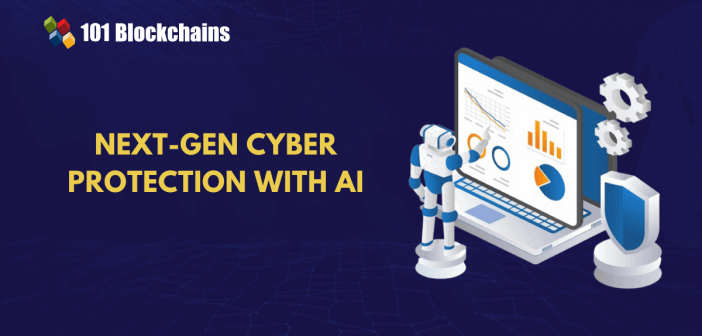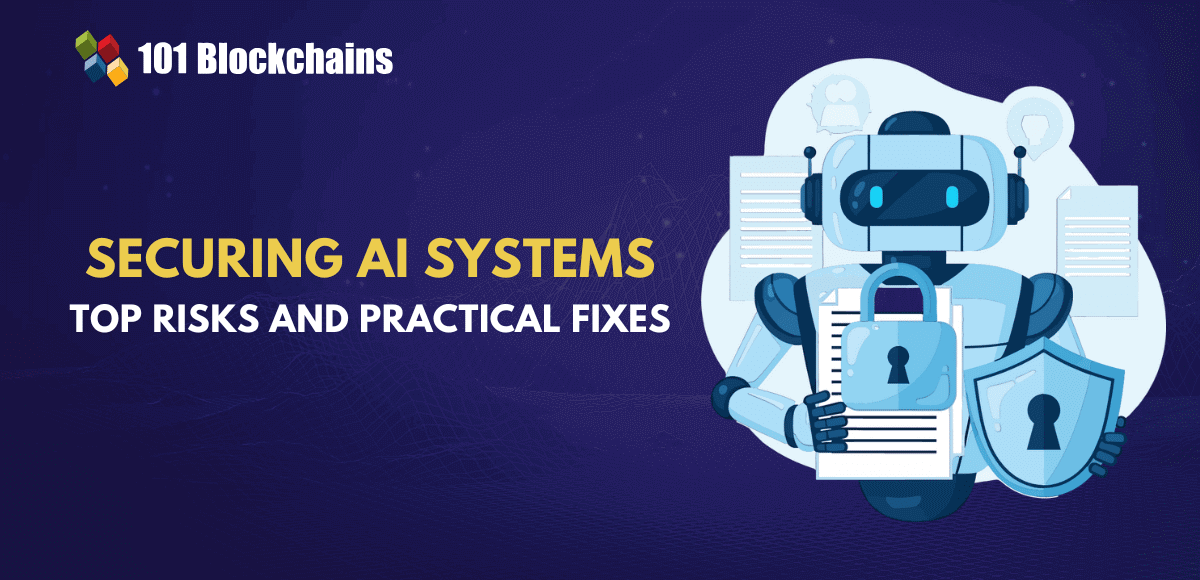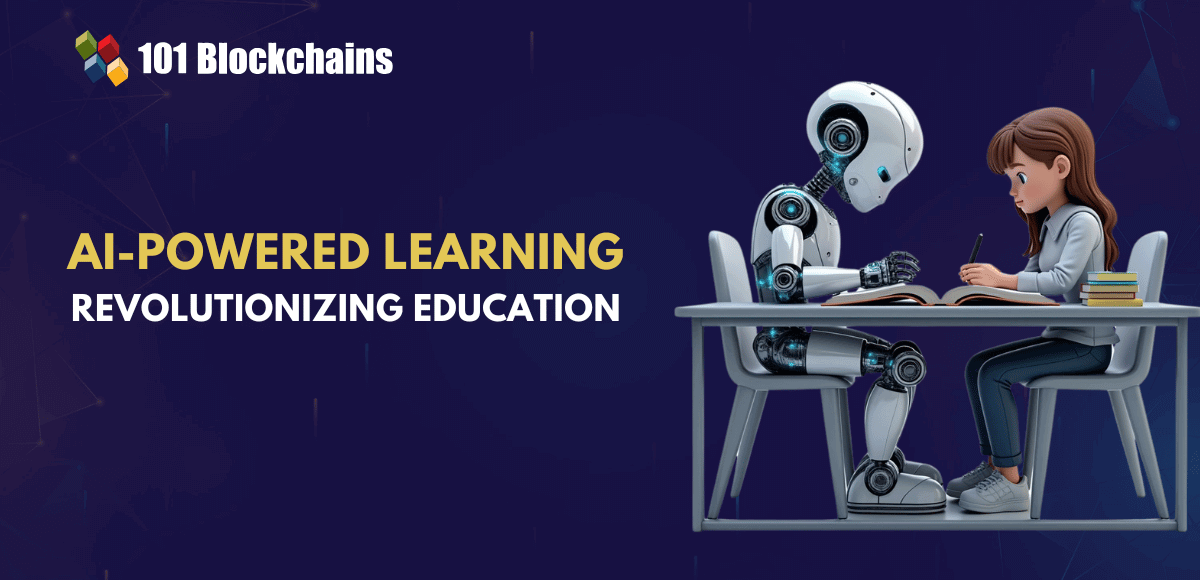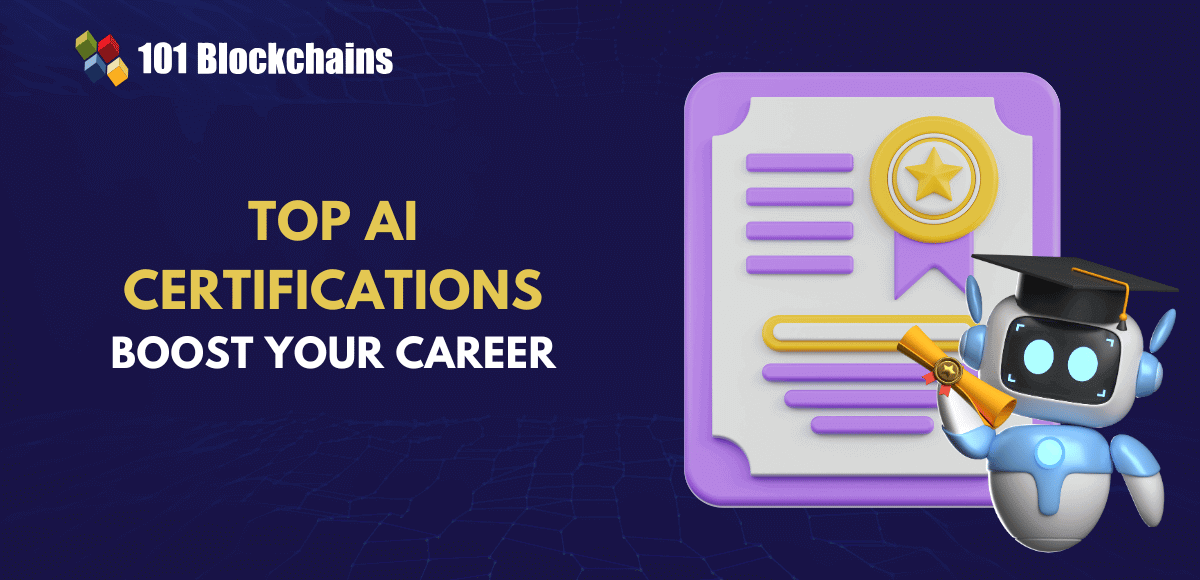Earn the Certified AI Security Expert (CAISE)™ certification and master LLM security and advanced AI defenses to tackle real-world AI risks.

- AI & ChatGPT
Georgia Weston
- on November 07, 2025
AI in Cybersecurity: Threat Detection & Prevention
In this current digital era, where the cases of cyber threats are increasing and getting more relentless and sophisticated, traditional security methods are no longer enough. From phishing and ransomware to zero-day exploits and insider threats, hackers are using modern tools to steal data and breach defenses quickly. To deal with businesses are now deploying AI in cybersecurity threat detection methods.
Artificial intelligence is not just enhancing cybersecurity; it is also transforming it. By detecting patterns, analyzing massive datasets, and offering real-time solutions, AI helps security teams to detect suspicious activities and threats quickly. It offers smarter and adaptive protection to businesses and users.
In this blog, we will discover how AI threat detection is reshaping the current cybersecurity landscape by introducing advanced security features.
Understanding the Need for AI in Cybersecurity
Modern security threats, such as insider attacks and ransomware, change tactics frequently, making traditional security systems ineffective. Cybercriminals are now using sophisticated methods such as deepfake phishing, polymorphic malware, and AI-assisted brute-force attacks.
Manual security monitoring always struggles to detect such things, leading to delayed responses, costly data breaches, and overlooked security threats. Recent reports show the global average cost of a data breach is around USD 4.4 million (Source: IBM). And around 97 percent of organizations have experienced an AI-related security issue (Source: IBM).
Hackers are targeting everything, from endpoints to cloud networks, IT infrastructure, and IoT devices. Well, AI can address these issues, offering contextual intelligence, adaptability, and automation. AI in cybersecurity threat detection can:
- Analyze massive databases in real time
- Automate threat identification and responses
- Detect patterns and anomalies that are invisible to you
- Learn from new attack patterns and evolve with time
It can be said that AI threat detection tools don’t just react; they anticipate and adapt, offering you a robust layer of security.
Want to understand the importance of ethics in AI, ethical frameworks, principles, and challenges? Enroll now in the Ethics Of Artificial Intelligence (AI) Course!
AI Threat Detection- How it Works
In simple words, AI threat detection uses deep learning and machine learning algorithms to detect potential security risks or suspicious behaviour with maximum precision and speed. AI-powered security tools collect and process massive volumes of data continuously from different sources.
They collect data from network traffic, system logs, user activity, etc. After that, these tools analyze the collected data to identify any unusual behaviour using anomaly identification methods.
When they detect potential threats, they notify security experts for further analysis or can initiate necessary mitigation techniques. By continuously adapting, these threat detection tools remain responsive and agile, helping businesses and users protect sensitive data and stay ahead of cybercriminals.
Gain a solid foundation in machine learning with Machine Learning Fundamentals Course, understand the real-world impact of various ML techniques, and build the skills to apply predictive analytics and optimization effectively.
Application of AI in Cybersecurity
Undoubtedly, the role of AI in cybersecurity threat detection has become pivotal. It enables the security systems to learn and enhance their threat response strategies. AI-powered security tools offer more adaptive, faster, and smarter responses. Read on to explore more about the application of AI in cybersecurity.
-
Cybersecurity Threat Identification
AI-powered systems continuously monitor the network traffic, system logs, and user behaviour to find out malicious activities like insider threats, ransomware, and phishing. With the help of machine learning, these systems are trained on historical incidents and can easily identify small deviations in normal behaviour, flagging possible breaches.
For instance, Vectra AI uses behavioral analytics to detect threats by observing and learning normal patterns of systems and users. Furthermore, artificial intelligence also strengthens endpoint protection.
-
Automated Response
It facilitates rapid containment by isolating hacked systems and triggering threat recovery protocols automatically. This significantly reduces human intervention as well as response time. This helps businesses to ensure that threats are eliminated before they cause system-wide disruptions. QRadar by IBM can prioritize as well as respond to threats automatically. It helps security experts to work on more complex activities.
-
Fraud Detection
In e-commerce, fintech, and banking, AI threat monitoring tools analyze transaction patterns to identify fraud. They can flag various anomalies such as unusual purchase value, sudden change in location, unusual login attempts, etc.
For example, the Decision Intelligence system of Mastercard utilizes the power of AI to analyze the risk of transactions, enhancing the accuracy of fraud detection.
-
Malware and Phishing Defense
Artificial intelligence filters websites, downloads, and emails to detect phishing attempts as well as malicious software. AI threat detection tools continuously analyze embedded links, sender behaviour, and content to detect hidden threats.
Some advanced tools can also identify synthetic media and deepfake scams, providing you with better protection against rising deepfake cyberthreats.
-
Speed and Automation
A key strength of artificial intelligence is its ability to automate the process of threat detection. Modern security systems powered by AI can correlate alerts from different sources and initiate containment protocols automatically, accelerating response time.
-
Identity and Access Management
AI enhances access and identity management by automating the process of detecting privilege misuse and unauthorized login attempts. AI security systems monitor login patterns, access frequency, and device usage to detect anomalies.
Furthermore, these systems can deploy adaptive authentication, and access levels can change based on risk profiles.
In summary, AI threat prevention systems offer a scalable, intelligent, and robust defense mechanism. With this, organizations can keep their digital infrastructure protected from emerging threats.
Unlock your potential with the Certified AI Professional (CAIP)™ Certification. Gain expert-led training and the skills to excel in today’s AI-driven world.
Benefits of AI Threat Detection
AI in cybersecurity threat detection offers impressive benefits, enhancing threat detection and mitigation procedures. Some major benefits organizations will enjoy with this are:
- Lower False Positive: AI-powered tools learn from patterns and optimize their algorithm continuously to reduce false positives.
- Quick Threat Detection: By analyzing massive amounts of data faster than humans, these systems detect threats quickly.
- Enhanced Threat Intelligence: With the self-learning capability, AI systems can provide users with insights into current and future cybersecurity risks.
- Proactive Defense: AI has the ability to identify emerging and unknown threats like zero-day vulnerabilities by analyzing patterns in large volumes.
Challenges In AI-Assisted Threat Detection
While AI security tools have many benefits, they also come with some limitations and challenges.
- Data Privacy and Ethics: These tools analyze information, including personal details, logs, etc. This may lead to misuse of data. To avoid such issues, organizations need to follow security regulations like CCPA or GDPR while managing data.
- Trust and False Positive: Depending completely on artificial intelligence can lead to more false alarms. To reduce this, businesses should train and fine-tune AI models regularly with updated information.
- Complexity: AI-powered tools require expert tuning of large datasets, and they should be integrated with existing tools to work properly. Businesses should focus on the ongoing maintenance of these systems to ensure their effectiveness and accuracy.
Master the concepts of ChatGPT to boost your skills, improve your productivity, and uncover new opportunities with our ChatGPT Fundamental Course.
The Future: AI-Human Collaboration
Experts say artificial intelligence will not completely replace security experts. In fact, it will help them to enhance their skills, resulting in a new era of AI-Human collaboration. Well, the future can be characterized by:
- Autonomous Operations: Systems will support autonomous remediation, response, and may self-heal after minor incidents.
- Self-Evolving and Adaptive Models: AI models will learn from every failed and successful incident, adapting their defence capabilities in real-time.
- Holistic Protection: By integrating with every security layer, like identity, cloud, and network, AI security systems will offer eXtended Detection and Response, allowing a full-spectrum threat analysis.
AI will become the core of cybersecurity measures, offering adaptive and advanced defenses to effectively counter ever-evolving cyberattacks. Besides, the demand for specialized security experts and data scientists will increase as they will be responsible for creating and training AI models.
A Powerful Shield for an Intelligent World
By integrating artificial intelligence into cybersecurity frameworks, businesses can gain precision, speed as well as adaptability. As threats are evolving, the defenses must evolve too. And it is possible by bringing AI in cybersecurity threat detection. Modern AI threat detection tools are transforming the complex task of defense into automated, human-augmented, and intelligent security operations. In the battle for a secure digital world, AI is the warrior that never sleeps. Enhance your expertise and stay ahead of evolving threats with an AI Certification.





